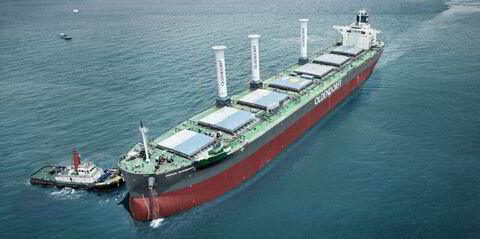Esben Poulsson, chairman of the International Chamber of Shipping (ICS) says that the difficult decision on when to send ships for recycling has been partly resolved by recent clarifications on upcoming regulations aimed at making shipping more sustainable.
“The good news - if it we can call it that - is that a number of important regulatory uncertainties which have complicated decisions about when best to dispose of older ships are finally being resolved,” Poulsson told delegates at the TradeWinds Shipowners forum held in Singapore today.
“The economic sustainability of shipping and our environmental sustainability are inextricably linked. It is true that we have no control over demand for the industry’s services, but we do at least have influence over one part of the equation,” he said, noting that demand for maritime transport has actually increased by around 30% since 2008, with the annual volume of cargo carried by sea now exceeding 10 billion tonnes.”
“The problem, of course, is that the industry has continued to struggle with serious overcapacity. As well as the temptation to over order as demand begins to improve, decisions about when to recycle older ships are fundamental to the equation.”
Among the regulatory issues that have been resolved was the entry into force of the IMO Ballast Water Management Convention, and the clarity provided by IMO last year regarding its implementation dates.
In addition, Poulsson stressed, while the precise cost of compliance with the IMO global sulphur cap is still unknown, the situation should become clearer after January 2020 now that IMO has confirmed that the implementation date is irrevocable.
Commenting on last month’s ground breaking IMO agreement on reducing CO 2, Poulsson said that the short term goal of achieving a 40% efficiency improvement by 2030, as an average across the sector, was probably achievable with existing technology.
“But this is almost certainly going to result with the adoption of additional IMO regulations that must start delivering results before 2023,” he cautioned.
The more ambitious and challenging longer term goal of improving ship efficiency by 70% and cutting the sector’s total CO 2 emissions by 50% by 2050 could only be achieved with the use of zero CO 2 fuels and propulsion systems.
“The priority of governments must therefore be to assist the rapid development of these new zero CO 2 fuels as soon as possible, since at the moment they do not exist in a form which is commercially viable – certainly not for long haul shipping.”
“We are optimistic that these challenges are not insurmountable, provided all concerned fully appreciate their enormity,” he concluded.





